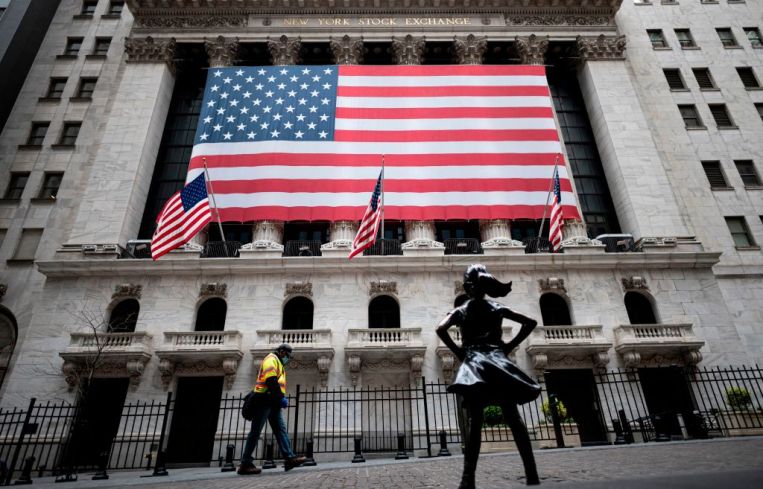Wall Street Bonuses Fall to Pre-Pandemic Levels
A new state comptroller report cites rising interest rates as the main culprit
By Brian Pascus March 30, 2023 3:01 pm
reprints
It appears hard times might be on the horizon for finance employees.
A new report from New York Comptroller Thomas DiNapoli found the average bonus paid to securities-focused employees on Wall Street fell 26 percent in 2022, and that bonuses across the financial sector have largely returned to pre-pandemic levels.
The overall Wall Street bonus pool of $33.7 billion in 2022 declined 21 percent from last year’s total of $42.7 billion — which set a record for annual bonus pay and exceeded the industry’s previous high of $37.1 billion in 2020, according to the report.
The average bonus for securities employees in 2022 was $176,700, a steep drop from the previous year’s average of $240,000. The comptroller’s office cited rising interest rates — the Federal Reserve’s benchmark rate has increased by nearly 5 percent over the last 12 months — and a widespread fear of an impending recession as reasons why Wall Street banks tightened their purse strings in 2022.
Moreover, Wall Street’s pre-tax profits fell 56 percent from the previous year’s total, which exceeded $56 billion, according to data from the comptroller’s office. Along with the higher interest rate environment, DiNapoli’s report cited instability generated by the war in Ukraine and inflation as the main reasons for the year-over-year decrease in investment banking fees.
“Wall Street’s cash bonuses were expected to fall as several factors weighed on the securities’ industry profitability in 2022,” DiNapoli said in a statement. “A 26 percent decline brings the average bonus closer to what financial employees received prior to the pandemic.”
The decline in take-home pay for securities employees comes at a fragile time for the overall banking sector.
A regional banking crisis led to the demise of Silicon Valley Bank and Signature Bank over a span of three short days in early March, and concerns about the stability of the wider banking sector eventually led Credit Suisse to be bought by rival UBS in a $3.2 billion deal brokered by the Swiss government. Additionally, JPMorgan Chase and the Federal Reserve led an effort with a consortium of lenders to provide the beleaguered First Republic Bank with roughly $100 billion in unused liquidity.
The reversal of Wall Street’s proverbial fortunes could have significant consequences for New York tax policy, as well.
The comptroller’s office noted that Wall Street bonuses are a crucial portion of the city and state tax base, since bonuses are taxed as personal income. The securities industry provided 22 percent, or $22.9 billion, of state tax revenue in the state fiscal year that began in April 2022, and 8 percent, or $5.4 billion, of city tax revenue for the city fiscal year that began in July 2022.
The comptroller’s office said it expects the state will collect roughly $457 million less in tax revenue from securities industry’s bonuses than last year, and that the city will receive $208 million less.
DiNapoli was quick to point out that, despite the sharp annual declines, the New York economy goes beyond the production of the financial sector.
“While lower bonuses affect income tax revenues for the state and city, our economic recovery does not depend solely on Wall Street,” the comptroller’s statement added. “Employment in leisure and hospitality, retail, restaurants and construction must continue to improve for the city and state to fully recover.”
The securities industry employs more than 190,000 people in New York City, and DiNaploi’s office estimated that roughly one in 11 jobs in the city are tied to the securities industry in some way.
Brian Pascus can be reached at bpascus@commercialobserver.com.



